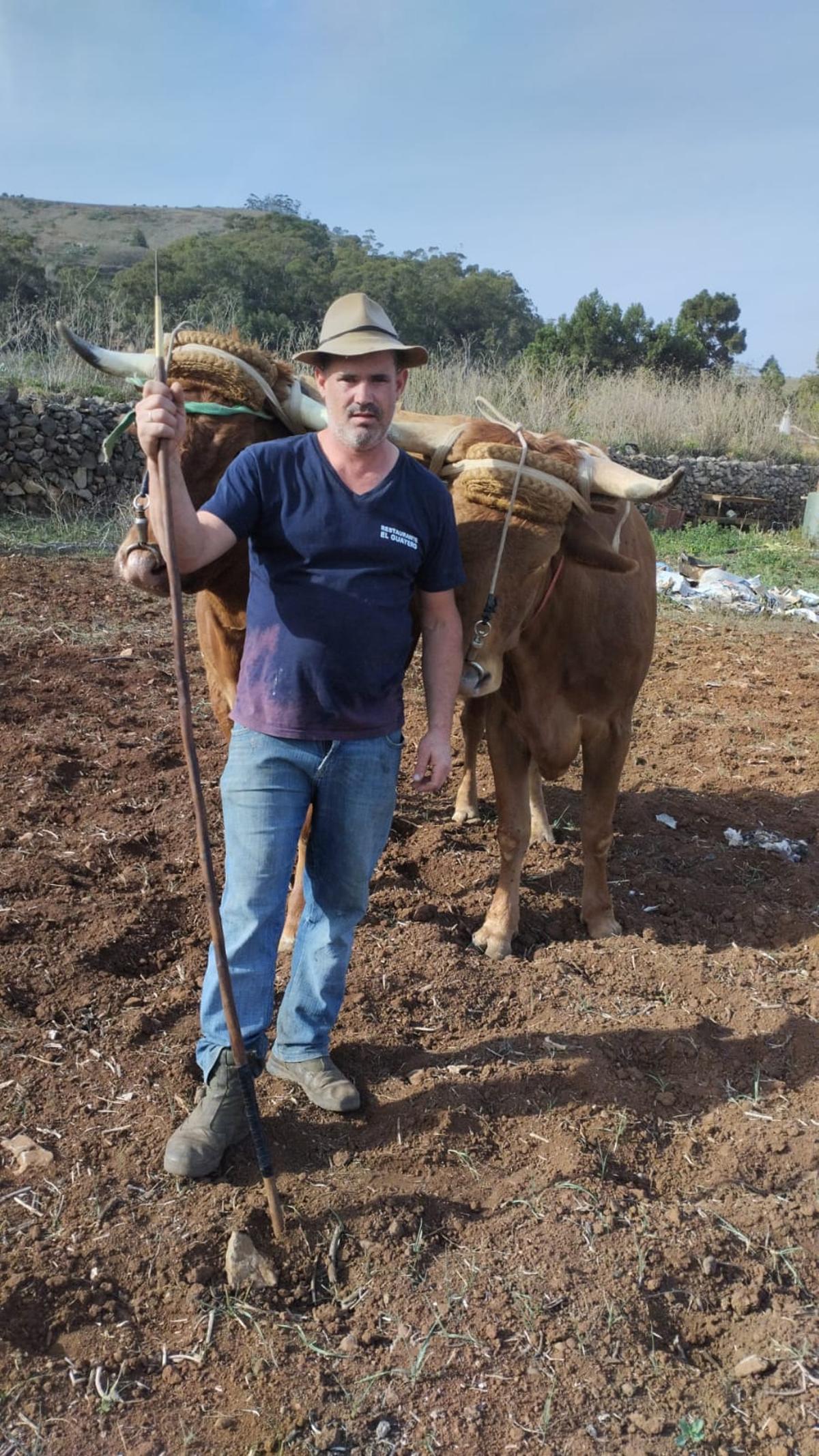A shepherd with nearly 200 head of livestock – sheep and goats – is available to clean the hillsides and ravines of weeds and invasive plant species like cat tails. This could be the introduction, with the telegraphic style of those now old word ads, of José Manuel Trujillo, a shepherd from Tegueste who has been dedicated to a task that has been carried out by several generations of his family.
This has been his life’s work and today, at 45, he proposes an idea that he already altruistically develops more or less regularly and that is linked to the prevention of forest fires, like the one that ravaged the island last summer. It confirms how much farmers and livestock breeders are struggling – in the midst of the recently declared drought in Tenerife – for various reasons, mainly the rise in input prices due to inflation and the enormous bureaucratic obstacles that, he claims, “are increasing”.
The name José Manuel Trujillo probably means very little to his own countrymen. It’s a different story when talking about El Corruco, a nickname that runs in the family. He believes it could be because “someone was curled up and people started calling him that, but I’m not entirely sure.”

José Trujillo ‘Corruco’ / E. D.
Shepherd from the start
A shepherd since he can remember, although he also runs a bar, José Manuel keeps his animals stabled in the Agua de Dios ravine area. There are between 180 and 190 heads plus eleven cows, because he is also a herder, which can be said in two ways, and he usually participates in the island’s pilgrimages. Of them, 40 are goats and the rest, sheep. His proposal is not new, but “they just don’t seem to pay attention.” He emphasizes that “it seems they prefer to hire groups of workers from Gesplan (a public company with around 3,000 employees) who can never perform this task as well as the animals.” He insists that “they are more valuable for this task than any experienced team, and we would complete the work where they could not reach.” For example, in the cane fields “cutting canes so they fall to the ground and they can eat them later.” He concludes with a reflection. “And it’s not a matter of taking away jobs, because there are many other tasks to be done.”
El Corruco, who shows energy and determination, insists that a contribution to the producer would be enough and there would be no hillside or stream that would resist. In addition, his initiative includes “teaching children how to herd, make cheese, or milk, create a kind of school to alleviate that lack of generational succession that everyone talks about and it’s true,” he says. His four children, Raquel (23 years), José (18) and the twins Elena and Daniela (7) know the fieldwork because they have absorbed it, but they neither do it nor he wants them to do it professionally because “it is unprofitable and very ungrateful.” He does not forget to mention his faithful dog, because every shepherd has a four-legged flock leader. In this case, King, a nine-year-old Garafian dog that “only lacks speech.” He has another one, Teno, a one-year-old of the same native Palmeran breed which “already shows promise.”
Critical Situation
José Manuel Trujillo was at the primary sector demonstration on the island of Fuerteventura last Friday, because “we can’t go on like this.” He explains: “The price of meat, milk, and cheese has been the same for 30 years, and it costs us double and almost triple to produce them than it did back then.” Like his fellow farmers – he belongs to Aguavite, the Cultural and Recreational Association Boyeros Villa de Tegueste, he believes a lot is at stake. From a way of life to the healthy food of the people and the economic balance of the shopping basket to the conservation of the land and the environment. He talks about roots, traditions, or feelings. In the end, “respect for our history and ancestors.”
Rosa Dávila
The President of the Tenerife Council, Rosa Dávila, proposed just a few days ago, on the occasion of the visit by the regional Minister of Primary Sector, Narvay Quintero, that “the livestock sector can be another element in the fight against wildfires.” She added that “we are going to consider letting our sheep and goats graze in those areas so they can clean them.” She explained that “it was limited because it was considered environmental actions,” but she concluded, “we are going to use grazing in certain areas, hand in hand with the Natural Environment department, so that the livestock can help clean part of our mountains on the island.”
Animal ‘firefighters’
Goats, sheep, or donkeys are natural firewalls. Goats at ground level, sheep at mid-height, or donkeys for taller plants. Animal firefighters who, while eating, clean the spaces of potential flammable material. The fire that devastated the forests of Tenerife for three months from August 15, 2023, brought to light that on Gran Canaria, a model is established in agricultural areas: transhumance and grazing as a fire break. The Council has long valued implementing the system on this island and the environmental catastrophe brought it back to the forefront. This is also supported by Santiago Cacho, vice president of the Tenerife Livestock Association (Agate).
The summarized initial announcement: shepherd with goat and sheep firefighters to get rid of the cat tail.















